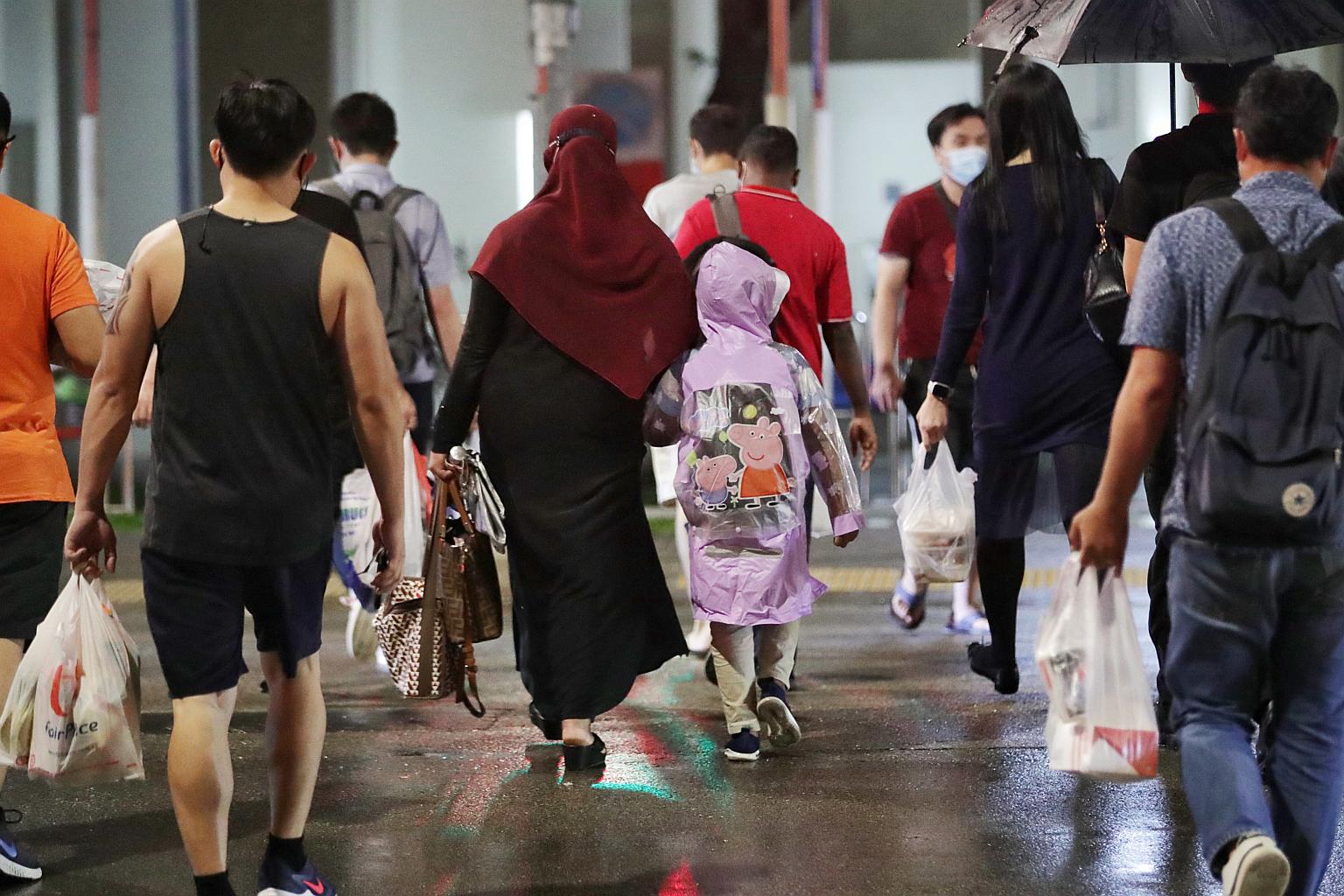Census 2020: Malays making strides in education, fare well in global education test, says Masagos
Sign up now: Get ST's newsletters delivered to your inbox

Census data showed there are more Malays attaining post-secondary or higher qualifications across all age groups, with the increase even more significant for younger Malays.
ST PHOTO: GIN TAY
SINGAPORE - While the Malay community may have proportionally fewer tertiary graduates than other groups, it has made strides in education, growing the number of those with post-secondary qualifications and outperforming international students, said Minister-in-charge of Muslim Affairs Masagos Zulkifli.
Responding to questions from reporters on Thursday (June 17) on the population census released this week, Mr Masagos noted that more Malay students here are able to attend Singapore's affordable "world-class" schools, which has allowed them to improve their lives.
"So for anyone of our community who has entered such institutions, including a polytechnic and so forth, they have been well prepared, qualified, and therefore when they have left these institutions, they are also world-class," he said.
Census data showed there are more Malays attaining post-secondary or higher qualifications across all age groups, with the increase even more significant for younger Malays.
Among Malay residents aged 25 years and over, almost half had post-secondary or higher qualifications in 2020, compared with less than a third in 2010.
This was even higher for Malays aged 25 to 34, of whom eight in 10 had post-secondary or higher qualifications in 2020, compared with six in 10 in 2010.
The community was also among the most improved in the area of below-secondary qualifications for those aged 25 and older, with a drop from 41.4 per cent to 28.9 per cent over the same period.
But it lags behind other groups for graduates.
The proportion of those aged 25 and over who are university graduates in 2020 was 34.7 per cent for the Chinese and 41.3 per cent for Indians - but only 10.8 per cent for Malays.
However, this figure for the Malays was nearly double that of 2010's census, which was 5.5 per cent.
Zooming in, the data showed that among those aged 25 to 34, the proportion of graduates in the Malay community was 19.8 per cent, compared with 66.4 per cent for the Chinese and 50.1 per cent for Indians in the same age range.
Nonetheless, the Malay community has made progress over the last decade, said Senior Minister of State for Manpower Zaqy Mohamad, who joined Mr Masagos on Thursday, along with other Malay leaders.
The proportion of graduates in the Malay community started from a low base and was less than 5 per cent back in 2000, said Mr Zaqy.
To have the number increase, even double in the last decade, is indicative of progress, he added.
Mr Zaqy also lauded the Government's efforts to create multiple pathways to university, noting that in the past, students would end their education at polytechnics or the Institute of Technical Education (ITE).
"But today, many of our graduates are able to progress from ITE to polytechnic, polytechnic to university, and this is where I think a lot of the work that the Ministry of Education has done is commendable," he said.
Mr Masagos said while Malays may not have performed as well in comparison with other communities here, they are doing well "in terms of a worldwide curve".
He noted that in 2019, the performance of Malay students in Singapore in mathematics surpassed that of students from countries in the Organisation for Economic Cooperation and Development in the Programme for International Student Assessment, a global education test.
To ensure that the community has the tools to thrive in Singapore's education system, the Government has put in place several initiatives for students of all ages, said the minister.
This includes a mentoring scheme through self-help group Mendaki for secondary and ITE students, as well as tuition schemes for primary and secondary students.
Mr Zaqy also highlighted how the number of Malays holding professional, managerial, executive and technical (PMET) jobs has increased, which he said translates to better desirable outcomes, such as greater household income.
Census data showed that the share of PMETs among Malays rose from 28 per cent in 2010 to 39 per cent in 2020.
A larger proportion of Malays were employed in fast-growing sectors such as information and communications, financial and insurance services, and professional services in 2020, compared with 2010.
Parliamentary Secretary for Health Rahayu Mahzam also said on Thursday that the Government will be paying some attention to the health of the community, noting that it is an enabler for better employment, education and housing outcomes.
"This is an area we need to pay some attention to because it affects the overall quality of life and it impacts on the ability of the person to fully participate and achieve their potential."


